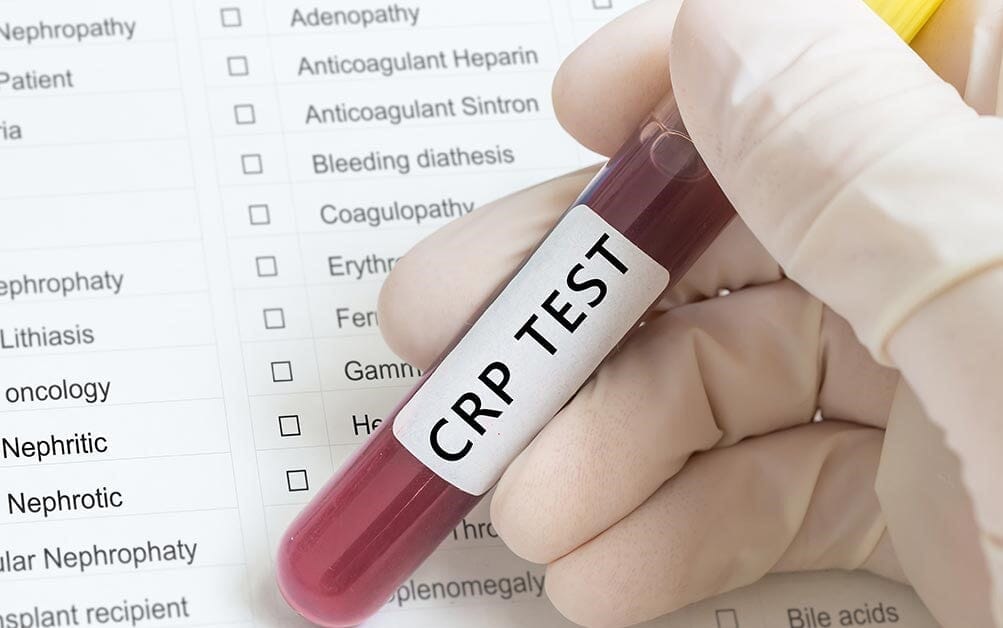
What if CRP is High in Blood test? What are the Next steps?
Time to read 3 min
Time to read 3 min
There are several inferences that can be made if the levels of CRP are higher. C reactive protein CRP test levels can depend on a range of parameters which is why further testing is recommended. A C reactive protein test result will also be determined by your medical history.
High C reactive protein levels in the CRP blood test can indicate the presence of infection, inflammation, an underlying condition, or other serious medical issues. You can also be at risk for autoimmune conditions, fungal infections, arthritis, and other conditions, which would require immediate treatment and tracking.
When understanding what if CRP is high in blood test, it is vital to get an accurate measure of the CRP levels. You can get the levels of CRP tested with a complete blood test, which will indicate whether there is an underlying infection present.
Your results for CRP will be less than 10 mg/L, generally around 5 mg/L
Your range here will be above 10 mg/L, and can indicate the presence of inflammation or serious infection.
You can check for underlying causes of the CRP levels being out of range by getting further testing. If there is inflammation in the body, the CRP test will indicate a rising of levels which you can share with your healthcare provider.
It generally takes only a few hours for the CRP levels to rise in your body after a serious infection. You can get a CRP test done to understand the impact of the infection so that you can take the right treatment measures.
The CRP test is performed when you experience symptoms or you suspect that you may be dealing with an underlying condition. This test is designed to check if there is a C reactive positive reading, as a high CRP level in an HS CRP test will be critical to track.
High CRP levels or elevations of C reactive protein can indicate the presence of an infection which would require immediate treatment.
Your underlying inflammation markers can be tested and affirmed with a CRP test.
Your risk of heart disease, especially if you have a family history, will be determined by a CRP test for elevations in any potential heart infections.
If you have a chronic condition that you are managing then getting regular CRP tests will be key. These will help in knowing risk elevation and issues with changing marker levels.
The effectiveness of medication and changes in your infection or inflammation markers can be checked with CRP testing.
If you have the following symptoms, then getting a CRP test is the best option for you.
A strong fever that has other symptoms accompanied with it can be an important marker, especially for those that are older.
A sensation of chills can be connected to infections or underlying conditions that can be checked with CRP testing.
One of the main symptoms of inflammation and infection is headaches that are strong.
You may experience body pain and aches that are connected to certain infections.
Shortness of breath is an important indicator that shouldn't go unnoticed in patients.
You can have rashes as another vital indicator, which is why you should get CRP testing done.
You may get the sensation of fatigue that may include body pain, fever, and headaches as well.
*Medical Disclaimer - The following information is for educational purposes only. No information provided on this website, including text, graphic, and images, are intended as substitutes for professional medical advice. Please consult with your doctor about specific medical advice pertaining to your condition(s)


